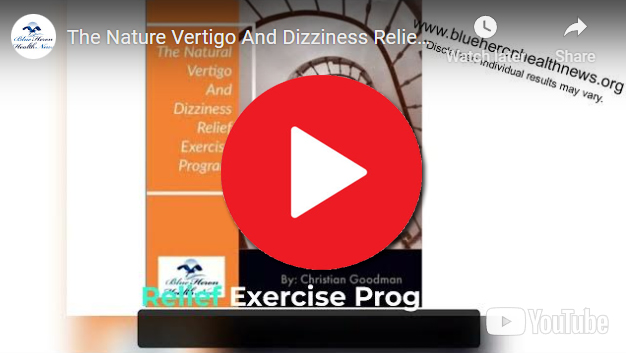
Vertigo is a condition characterized by a spinning sensation and a loss of balance. It can be unsettling and disruptive to daily life. While there are several causes of vertigo, including inner ear problems and certain medical conditions, diet plays a crucial role in managing its symptoms. In this comprehensive guide, we will explore the link between diet and vertigo and discuss the foods that can help reduce vertigo symptoms. We will also highlight the importance of hydration and explore some dietary supplements that may offer relief. Additionally, we will provide ideas for creating a vertigo-friendly meal plan that encompasses breakfast, lunch, and dinner.
Understanding Vertigo: Causes and Symptoms
Vertigo can occur for various reasons, including inner ear infections, Meniere’s disease, vestibular migraine, and even certain medications. The symptoms of vertigo often include dizziness, a spinning sensation, nausea, vomiting, and difficulty maintaining balance. While medical intervention is sometimes necessary to address the underlying cause of vertigo, making dietary changes can also play a significant role in managing symptoms.
The Link Between Diet and Vertigo
Research has indicated that certain food choices can impact vertigo symptoms. By incorporating specific nutrients into your diet, you may be able to alleviate some of the discomfort associated with vertigo. In particular, nutrient-rich foods, hydrating options, and those high in vitamin B6 and B12 have shown promise in reducing vertigo symptoms.
Moreover, it’s essential to consider the role of hydration in managing vertigo. Dehydration can exacerbate symptoms of vertigo, as proper hydration is crucial for maintaining the delicate balance of fluids in the inner ear. By ensuring you drink an adequate amount of water throughout the day, you can help support your body’s overall equilibrium and potentially reduce the frequency and intensity of vertigo episodes.
Additionally, stress management techniques can also be beneficial for individuals experiencing vertigo. Stress and anxiety have been known to worsen vertigo symptoms, so incorporating relaxation practices such as deep breathing exercises, meditation, or yoga into your daily routine may help alleviate some of the psychological factors contributing to vertigo. By addressing both the physical and emotional aspects of vertigo, individuals can take a comprehensive approach to managing this challenging condition.
Foods That Can Help Reduce Vertigo Symptoms
When experiencing vertigo, it is important to focus on foods that promote overall well-being and alleviate symptoms. Here are some food options that can help reduce vertigo symptoms:
Vertigo, a condition characterized by a sensation of spinning or dizziness, can be debilitating for those who experience it. While medical treatment is essential, incorporating certain foods into your diet may help manage the symptoms and improve overall well-being.
Nutrient-Rich Foods for Vertigo
Including nutrient-rich foods in your diet can provide essential vitamins and minerals that support overall health and help manage vertigo symptoms. These foods include leafy greens like spinach and kale, antioxidant-rich berries, creamy avocados, protein-packed nuts, fiber-filled seeds, and omega-3 fatty acid-rich oily fish such as salmon.
Leafy greens are excellent sources of vitamin K, which plays a role in blood clotting and bone health. Berries are known for their high levels of antioxidants, which help combat oxidative stress in the body. Avocados are rich in healthy fats and potassium, which can help regulate blood pressure. Nuts and seeds provide a variety of nutrients, including magnesium and zinc, which are important for nerve function and immune health. Oily fish like salmon are packed with omega-3 fatty acids, which have anti-inflammatory properties and may benefit those with vertigo.
Hydrating Foods and Beverages
Dehydration can worsen vertigo symptoms, so it is crucial to stay hydrated. Opt for hydrating foods such as watermelon, cucumber, celery, and oranges. Additionally, consuming enough water throughout the day is essential for maintaining hydration.
Watermelon is not only hydrating but also a good source of vitamin C and lycopene, an antioxidant that may help reduce inflammation. Cucumbers are low in calories and high in water content, making them a refreshing and hydrating snack. Celery is known for its crunchy texture and high water content, which can help keep you hydrated. Oranges are not only juicy and delicious but also packed with vitamin C, which supports immune function and overall health.
Foods High in Vitamin B6 and B12
Vitamins B6 and B12 have been linked to the reduction of vertigo symptoms. Incorporate foods such as poultry, fish, eggs, legumes, and fortified cereals into your diet to ensure an adequate intake of these vitamins.
Poultry like chicken and turkey are excellent sources of vitamin B6, which is involved in brain development and function. Fish, especially varieties like tuna and trout, are rich in vitamin B12, essential for nerve function and the production of red blood cells. Eggs are a versatile food that contains both vitamins B6 and B12, making them a convenient option for boosting your intake of these important nutrients. Legumes like lentils and chickpeas are not only high in fiber and protein but also provide a good amount of vitamin B6. Fortified cereals are often enriched with vitamin B12, making them a convenient breakfast option for those looking to increase their intake of this vitamin.
Foods to Avoid When Experiencing Vertigo
While certain foods can be beneficial for managing vertigo, some should be avoided as they may worsen symptoms. Here are some foods to steer clear of when experiencing vertigo:
High Sodium Foods and Vertigo
Excessive sodium intake can contribute to fluid retention, which may exacerbate vertigo symptoms. Avoid foods such as processed meats, canned soups, and fast food, as they tend to be high in sodium.
Foods with High Sugar Content
Consuming foods high in sugar can lead to fluctuations in blood sugar levels, which may trigger or worsen vertigo symptoms. Limit your intake of sugary treats, soda, and processed snacks.
Caffeine and Alcohol: Triggers for Vertigo?
While the research on the relationship between caffeine and alcohol and vertigo is inconclusive, some individuals may find that these substances trigger or worsen their symptoms. It’s best to observe your personal experience and limit or avoid them if necessary.
Additionally, it is important to note that certain food additives and preservatives may also have an impact on vertigo symptoms. Monosodium glutamate (MSG), commonly found in processed foods, has been reported by some individuals to trigger dizziness and imbalance. It may be beneficial to read food labels carefully and opt for whole, unprocessed foods whenever possible to avoid these additives.
Furthermore, dehydration can play a significant role in exacerbating vertigo symptoms. It is essential to stay well-hydrated by drinking an adequate amount of water throughout the day. Dehydration can lead to a drop in blood pressure, which in turn may worsen feelings of dizziness and lightheadedness commonly associated with vertigo.
The Role of Hydration in Managing Vertigo
Proper hydration is crucial in managing vertigo symptoms. In addition to consuming hydrating foods, make sure to drink an adequate amount of water throughout the day. Aim to drink at least 8 glasses of water daily to maintain optimal hydration levels.
Dietary Supplements for Vertigo
In addition to dietary modifications, certain supplements have shown potential in providing relief for vertigo sufferers. While it is advisable to consult with a healthcare professional before starting any new supplements, some options to consider include ginkgo biloba and ginger.
Ginkgo Biloba and Vertigo
Ginkgo biloba is a herbal supplement that has been used for centuries in traditional medicine. Some studies suggest that ginkgo biloba may improve blood flow to the brain and alleviate symptoms of dizziness and vertigo. However, further research is still needed to determine its effectiveness.
Ginger Supplements for Vertigo Relief
Ginger has long been recognized for its anti-inflammatory and antioxidant properties. Some individuals find that ginger supplements or ginger tea can help alleviate nausea and dizziness associated with vertigo. Again, it is essential to consult with a healthcare professional before adding ginger supplements to your routine.
Creating a Vertigo-Friendly Meal Plan
Implementing a vertigo-friendly meal plan can play a significant role in managing symptoms and supporting overall well-being. Here are some ideas to help you create meals that are nutritious and suitable for individuals experiencing vertigo:
Breakfast Ideas for Vertigo Sufferers
- A smoothie made with spinach, berries, yogurt, and a sprinkle of chia seeds
- Oatmeal topped with sliced bananas, walnuts, and a drizzle of honey
- Scrambled eggs with vegetables, such as bell peppers and mushrooms
Lunch and Dinner Recipes to Combat Vertigo
- Grilled salmon served with a side of quinoa and steamed vegetables
- Chicken stir-fry with colorful veggies and a light soy sauce
- Spinach salad topped with grilled chicken, cherry tomatoes, and a balsamic vinaigrette
Remember to customize these suggestions based on your personal preferences and dietary restrictions. It is also essential to listen to your body and make adjustments to your meal plan as needed.
In conclusion, managing vertigo requires a multifaceted approach, and diet plays a crucial role in reducing symptoms and improving overall well-being. By incorporating nutrient-rich foods, staying hydrated, and being mindful of certain food triggers, individuals with vertigo can take proactive steps towards managing their condition. Additionally, considering the potential benefits of dietary supplements and creating a vertigo-friendly meal plan can further support symptom relief. As always, consult with a healthcare professional for personalized advice and guidance on managing vertigo through diet and lifestyle modifications.
See More on Video

The Nature Vertigo And Dizziness Relief Exercise Program™ By Christian Goodman These simple exercises will only take 3-15 minutes of your time every day can be done anywhere including at home, office and even when on vacation. The results that you will get from simple head exercises that you will perform meaning that once you are healed, then you won’t have to do them again.